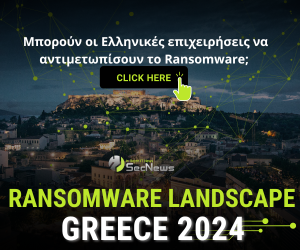Το πέρασμα στην μετα-Edward Snowden εποχή συνεχίζει να προκαλεί τις ίδιες ανησυχίες που έφεραν στο προσκήνιο οι αποκαλύψεις του. Η ιδιωτικότητα των πολιτών στο ψηφιακό περιβάλλον αποτελεί μία νοσταλγική ανάμνηση, καθώς τίποτα δεν εγγυάται ότι οι εκτεταμένες ηλεκτρονικές παρακολουθήσεις των πολιτών έχουν… περάσει. Ταυτόχρονα, η πρακτική των εταιρειών του Διαδικτύου να ζητούν πρόσβαση σε όλο και περισσότερα προσωπικά δεδομένα, ιδιαίτερα στις εφαρμογές για έξυπνα κινητά, αναδεικνύουν το πρόβλημα με μεγαλύτερη ένταση.

On June 2 (10:00 am), at Technopolis (Gazi), the postgraduate program "Quality Journalism and New Technologies" is co-organizing with the General Secretariat for Information the conference "Personal Data, Propaganda and Freedom of the Press", attempting to highlight the need for a new digital alphabet, a framework for the protection of the privacy of the citizen and the conditions for the flourishing of independent information.
Ανάμεσα στους εξέχοντες ομιλητές, στην ενότητα “Προσωπικά Δεδομένα” θα είναι ο καθηγητής Γιώργος Μητακίδης, Προεδρεύων του Οργανισμού “Φόρουμ Ψηφιακού Διαφωτισμού” και συμμετέχων στη δημιουργία του W3C (World Wide Web Consortium), θεμέλιου λίθου για την ανάπτυξη του Διαδικτύου. Όπως αναφέρει, “όταν δημοσιοποιήθηκαν οι αποκαλύψεις του Edward Snowden, όσοι ασχολούνταν με το θέμα, στις Βρυξέλλες και αλλού, έλεγαν, σιγά, τα ξέραμε. Και είναι αλήθεια. Και μάλιστα έλεγαν ότι ήταν υποκριτικές, οι αντιδράσεις που ακολούθησαν.
But often in political life, when something comes out, it changes things. It's what the Commissioner for the Digital Agenda, Nelly Croes, said was a wake-up call. Then we saw a chain of reactions in different countries, Germany, Brazil, we had a new situation, a new awareness, and this creates the possibilities to do something, inspired by the Enlightenment, to bring certain situations to the fore. Hence Tim Berners' recent statement about the need for an Internet Magna Carta. After all, the first official version of Human Rights was in that ideological and temporal context.
Another message of the Enlightenment was the empowerment of the individual, his emancipation. To be able to make his own decisions, to have a level of knowledge and not to be subservient. Eisenhower, in his farewell address, spoke of the threat from the military-industrial complex. Now, we are in danger of becoming a slave to the banking-technological complex. If you take the so-called GAFA (Google - Apple - Facebook - Amazon) and examine collectively the control they have over us and on the other side the financial-banking establishment, we have a new form, worse than the one Eisenhower warned about. It is a fact that we are invulnerable to them.
The difficult question is what are the choices we really have, as Europeans, as Greeks, as individuals. When, for example, the director of Google comes out and says something like 'this is the price for having free services', we understand that nothing is free. We pay very dearly for this service. Aren't they profiting from our personal data? How much are they making and what are they giving us? We have to weigh the real data to make the right choices."
For his part, the head of the programme "Quality Journalism and New Technologies", Marios Nottas, focuses on the issue of passive acceptance of the terms of use of various digital applications: "Those who think they are installing 'safe' programs on their computers should think again. The concept is simply non-existent. Worse still: we are consenting ourselves. The legal departments of those who develop software, for legitimate, but also abusive reasons, make sure of two things: a) that we 'agree' to the usually illegible, ropey and foreign-language terms as a condition of using the program, and b) that we even ... preemptively agree to terms they will formulate in the future.
The global situation in 2014 is like a vast digital banana republic, and - apparently - "nobody's ears are sweating". Of course, there are worse things to come. The 'dark' processes behind the 'innocent' data collected about the user and their habits by the software in question, and the 'innocent' network of partners of the 'manufacturer' company that gains access to this same data. And we are not talking about its current (unknown to us) partners, but even its ..future ones.
Let's hope that both the universities and the institutions in charge, especially the competent Independent Authority, and more importantly the active citizens, will mobilize for a safer and fairer digital future, or as we will discuss on Monday in Technopolis, there will be a consensus on the necessity of a new Digital Magna Carta. A Charter that will redefine Digital Citizenship, our new coexistence in social groups whose lives are (fortunately or unfortunately) determined by New Technologies".
The conference starts at 10.00 on Monday morning, June 2 and will be broadcast online by kathimerini.gr. More information can be found on the website www,pressfreedomday.com.

